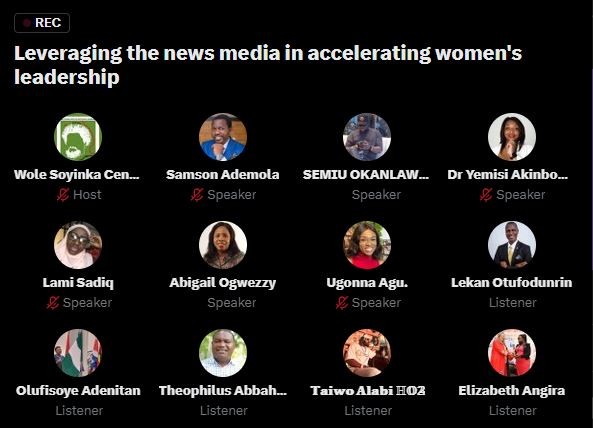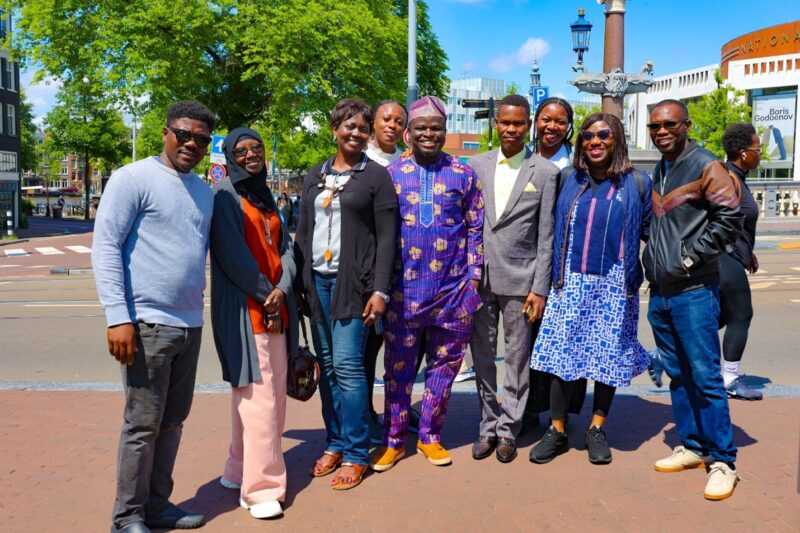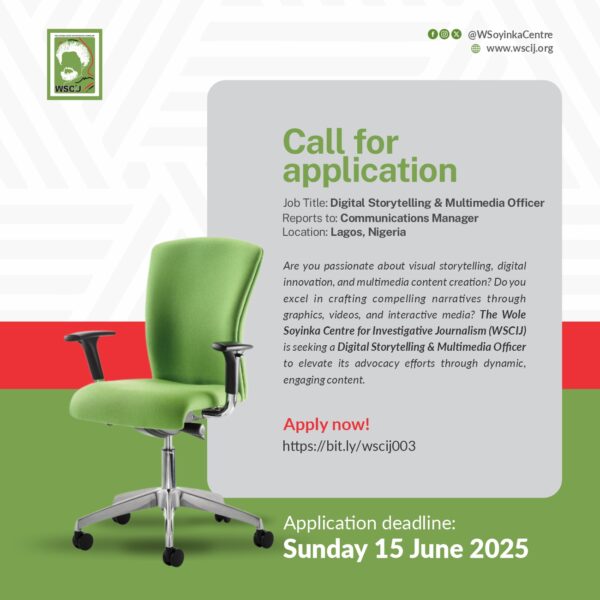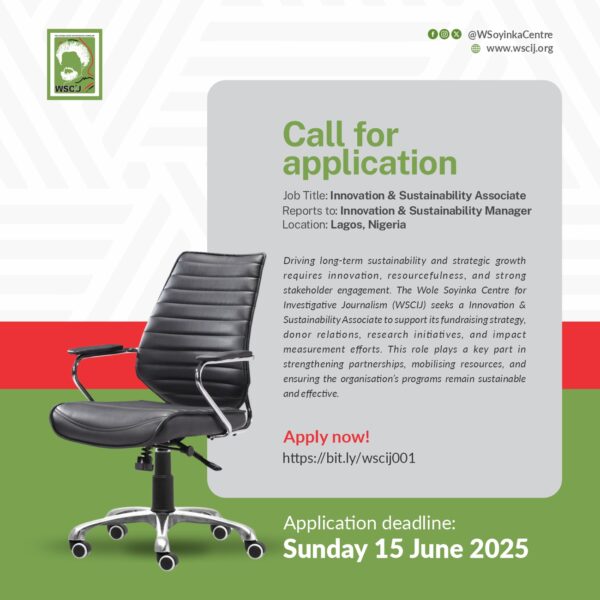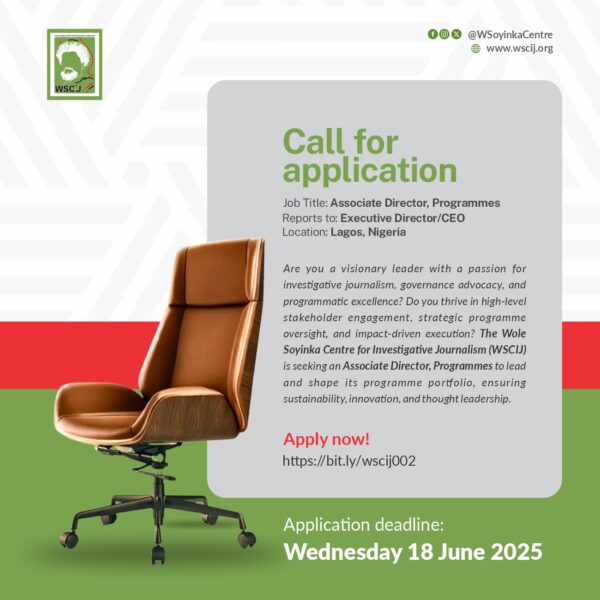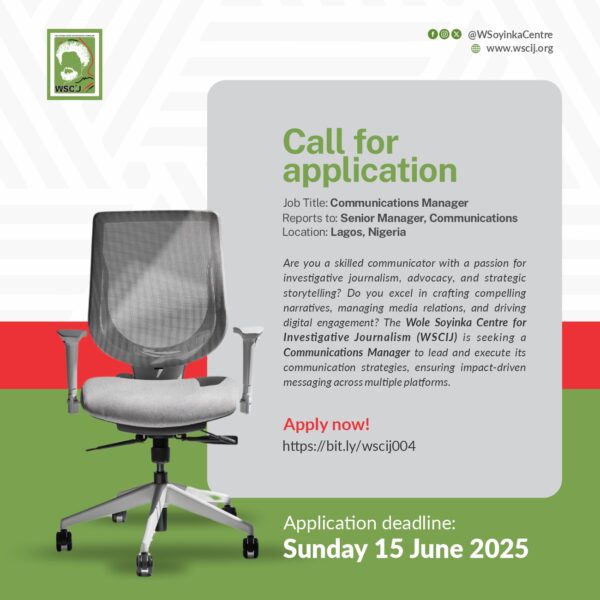As part of efforts to commemorate this year’s International Women’s month, Panellists at the Journalism & Society Conversations hosted by the Wole Soyinka Centre for Investigative Journalism (WSCIJ) on Tuesday, 18 March 2025 highlighted the pressing need for gender balance in media. They emphasised the urgent need for gender quotas, a transparent promotion process and comprehensive policy overhaul to advance women’s leadership and representation.
Moderated by Ugonna Agu, a journalist with the Federal Radio Corporation of Nigeria, the conversation, titled “Leveraging the news media in accelerating women’s leadership in Journalism and society,” brought together journalists, academia’s, women inclusion activists and civil society actors to discuss how the news media can challenge barriers, amplify women’s voices and drive policy changes that supports fair representation of women in leadership.
Lami Sadiq, Group Investigation Editor at Media Trust Group, highlighted the persistent gender gap in newsrooms, noting that while women journalists have made progress, leadership representation remains low. A report by the Wole Soyinka Centre for Investigative Journalism ‘Who leads the newsroom and news?’ shows that women occupy only 25 to 26% of leadership roles, which she described as discouraging. Sadiq stressed that beyond numbers, more women are now covering demanding beats like crime, judiciary, and national assembly reporting. However, systemic barriers, work-life balance struggles, and a lack of institutional support continue to slow their career growth.
On his part, Semiu Okanlawon, Publisher at NPO Reports, expressed worries on the growing shift among mass communication students away from traditional journalism towards social media monetisation, influencer marketing, and content creation. Without proper guidance and structured mentorship, he warned, this trend could further reduce the number of women in key newsroom roles, weakening their influence in shaping news narratives.
Yemisi Akinbobola, Executive Director of African Women in Media (AWiM), emphasised that promoting women into leadership roles in journalism demands a strategic, multi-stakeholder, and multi-sectoral approach. She called for a thorough review of media laws and ethics to align with gender equity goals, citing weak enforcement of the national gender policy.
Speaking on sexual harassment, systemic bias, and unfair recruitment as key barriers, Akinbobola urged policymakers, legislators, and funders to support initiatives that boost women’s newsroom participation. Beyond mentorship, she advocated for gender quotas, transparent promotions, stronger national policies, and stricter regulatory enforcement to drive lasting change.
Abigail Ogwezzy-Ndisika, Director of Continuing Education at the University of Lagos, empahsised that gender policies alone are ineffective without tackling the deep-rooted biases that hinder women representation. To drive real change, policies must address inclusivity, recognise gender bias, and dismantle stereotypes. On bridging the gender gap in journalism education, she advocated for making gender studies a compulsory part of mass communication curricula and the need for well-trained lecturers who understand the complexities of gender issues.
Adding to the discussion, veteran broadcaster Bimbo Oloyede emphasised the importance of distinguishing between sensational headlines and factual reporting. She urged journalists to prioritise information accuracy over headline-grabbing narratives in the evolving media landscape.
The Journalism & Society Conversations by WSCIJ was initiated in 2023 to explore the evolving landscape of journalism in Nigeria. The conversations bring together stakeholders to discuss pressing issues such as press freedom, regulatory frameworks, and the vital role of investigative journalism in holding the government accountable and contributing to nation-building.

